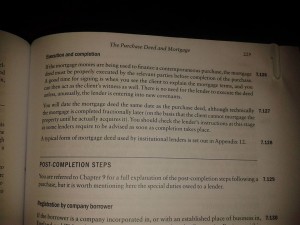Money out of thin air?
Well it would appear they (the banks) cannot just do that.
There must be something to monetise in the first place.
Where can these items be verified?
Bank Of England state as per their quarterly bulletins
Quarterly Bulletin 2008 Q1 Volume 48 No. 1
Steve Baker MP house of commons debate and Hansard
Steve Baker MP at the historic debate in UK Parliament on Money Creation
The full text of the debate is here
and here http://www.publications.parliament.uk/pa/cm201415/cmhansrd/cm141120/debtext/141120-0002.htm
These are verifiable statements on the record in the public domain.
We need to look at how the equitable arrangements of a mortgage come about.
If it can be proved as a fact that zero loan existed when your freehold was purchased, how can the alleged lender make any claim AT ALL?
What is the most that an alleged lender can claim?
Even using case law that they can take the house back before the ink is dry? (link required)
We would suggest that in “Equity” this figure could be a MAXIMUM of 50% of any alleged loan and then 100% if in fact a loan did actually take place with facts, evidence and full accounting.
This is based on an exchange of items or a swap. Your paperwork for their advance.
Where someone has been in their home for 10 years with a £100,000 “Mortgage” paying £500 per months they may have fallen behind by 2 months payments.
This is enough for the alleged lender to take possession proceedings.
As Loyd Grossman would say…..” Lets have a look at the evidence!”
If NO LOAN takes place, then any “Money” (credit) that came out of thin air because someone wrote something on a piece of paper, who is entitled to make a claim and for what?
This is where we get our 50% from. A swap or exchange of two items having the same value but a different specie of “MONEY”.
Paying the £500 per month soon tots up. That is £6000 per year and after 10 years £60,000.
The £120,000 house is now probably worth £200,000.
The alleged lender now claims that due to the fact you have not paid TWO months of £500, they want “their” house back.
In equity, where are we with this and the accounting?
I’m guessing that you already worked out that you put in quite a bit more than the bank.
Even IF they made any loan at all!
#VOIDMORTGAGE
